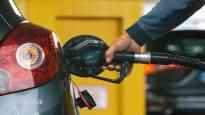The discussion on the EU’s climate package will culminate in a vote on bills. Parliament’s positions have yet to be agreed with the Member States.
8.6. 06:10 • Updated 8.6. 10:03
STRASBOURG Today, the EU’s long-established climate package is taking a leap forward as the European Parliament votes on a number of bills to reduce emissions.
The Finnish MEPs interviewed by estimate that the majority of the parliament supports the goals of the Commission’s Fit for 55 package. However, bills are not swallowed without chewing.
– I believe that Parliament broadly supports the Commission’s proposal, which is based on the premise that the 55% emission reduction target under the Climate Act must be achieved and that some of it will be exceeded. In addition, Parliament has more climate-friendly positions on some points, the Green MEP Ville Niinistö estimates.
The package is based on EU climate law, which tightens the 2030 emission reduction target from 40% to 55% compared to 1990. By 2050, the EU is committed to full climate neutrality.
Will internal combustion cars go down in history?
The climate package contains a number of proposals for transport and mobility. Among other things, the EU will tighten emissions trading in the aviation sector.
Emission standards for road transport will also be tightened. There is a proposal on the table for zero-emission new passenger cars and vans by 2035. In practice, this would mean a ban on internal combustion engines in the EU and a switch to electric and hydrogen cars.
The center-right EPP group in Parliament is in favor of a milder target of 90%, which would allow new technologies to be taken into account.
– I see that the role of internal combustion cars should continue to play a role in the future. We have different areas and conditions, and I believe we will have good renewable fuels in the future, the Coalition Party Henna Virkkunen says.
Coal duties are making their mark
The climate package also includes a proposal for carbon tariffs on imports into the EU. Tariffs would be imposed on high-emission products imported from outside the EU, such as steel.
In practice, the import of high-emission products into the EU would have to be paid for in the future.
Underlying this is the desire to safeguard the competitiveness of European companies as EU climate legislation is tightened. At the same time, non-EU countries are encouraged to pursue more ambitious climate policies.
The free allocation of allowances has safeguarded the competitiveness of companies in non-EU countries. Representing the S&D Group Miapetra Kumpula-Natrin the risk is that countries in dirtier industries will benefit at the expense of the EU when trading outside the EU.
– In principle, however, European steel is cleaner than that produced in many other countries.
Changes are expected in land use
In addition to transport, the climate package also has implications for land use and forestry. The purpose of the so-called LULUCF Regulation is to increase Europe’s carbon sinks. Increasing carbon sinks, such as forests, is an effective way of combating climate change, in addition to reducing emissions.
In Finland, the forest industry in particular has been concerned about logging volumes if carbon sinks are grown too much. According to Ville Niinistö, who acted as the main negotiator of the regulation, the concern is exaggerated.
– I think that Finns appreciate that nature values and the landscape values of forests are improving and recreational use is increasing. Wood also has value as a producer of natural values and carbon sinks.
According to Niinistö, sustainably produced wood is also profitable from a market perspective.
– The forestry market will be large in the future because wood is sustainably produced.
Temporary derogation for winter shipping
The expansion of emissions trading will also have an impact on winter shipping, which is important for Finland. There has been a general concern that emissions trading does not take into account the additional costs of ice-strengthened vessels.
In a decision made at the beginning of the month, EU transport ministers supported granting Finland a temporary exemption for sustainable marine fuels.
An understanding of Finland’s special conditions can also be found in the EU Parliament, Kumpula-Natri assures.
– I dare say that the work of Finnish pastors paid off. An ice-strengthened ship required for winter shipping receives slightly more emission rights than normal ships.
Parliament’s positions are being reconciled with the Member States
The details of the package are expected to be smooth. It is expected that positions will also be divided within the political groups in Parliament.
However, MEPs interviewed by emphasize the broad consensus in Parliament that action is needed to reduce emissions. For example, there are differing views on the timing of climate action and its impact on industry and jobs.
– We need to make sure that we do not make solutions that lead industry to seek out outside Europe, says Henna Virkkunen.
The views of the European Parliament have yet to be reconciled with the Council, which represents the member states. The positions decided in the vote may therefore change in the course of further negotiations.
What ideas does the EU climate package give you? Is the EU meeting its climate targets? Can discuss the topic until Wednesday, June 8 at 11 p.m.
09:59: The decision of the transport ministers mentioned in the story concerned marine fuels. The Council will discuss emissions trading in maritime transport at the end of June.
